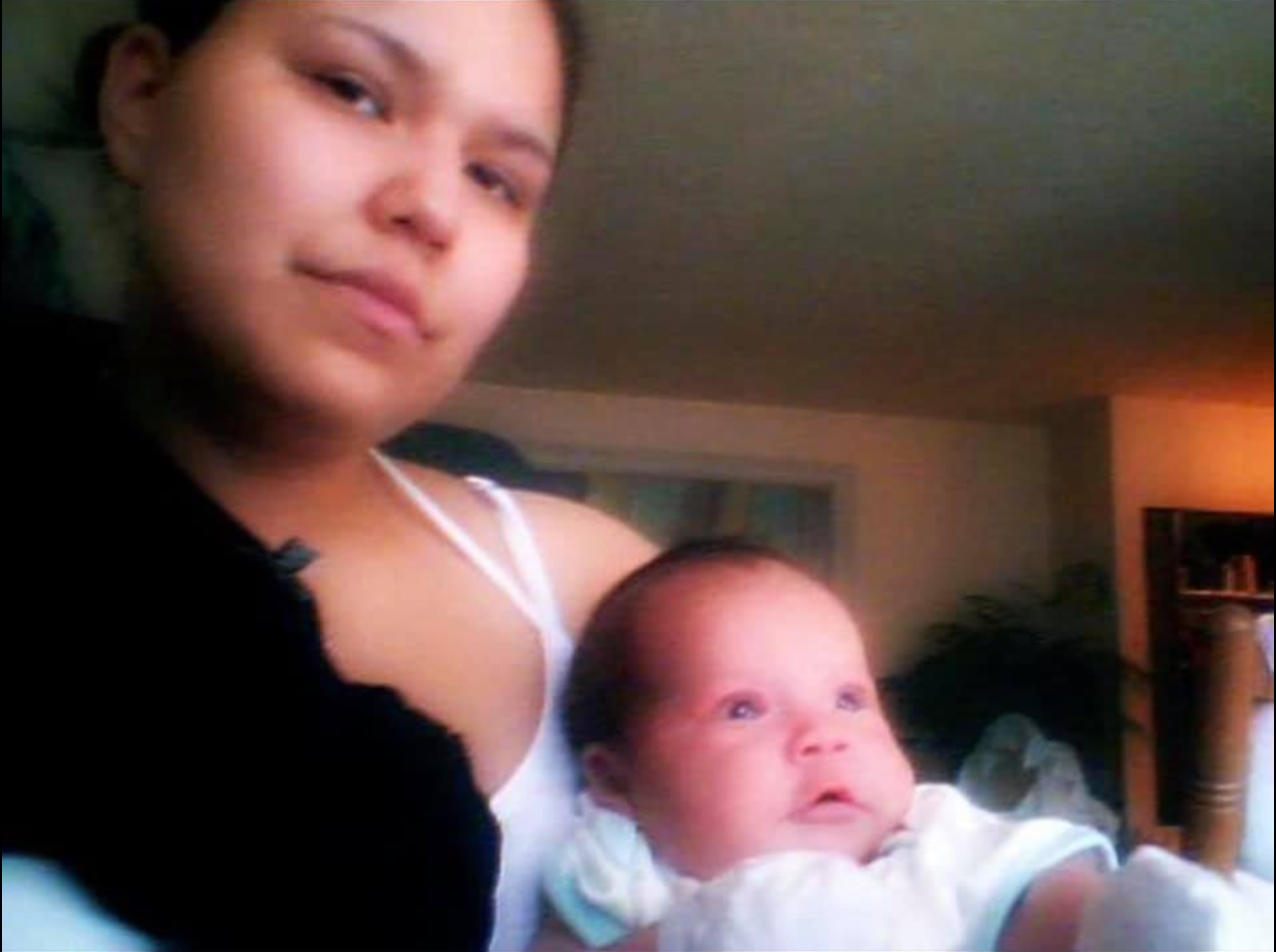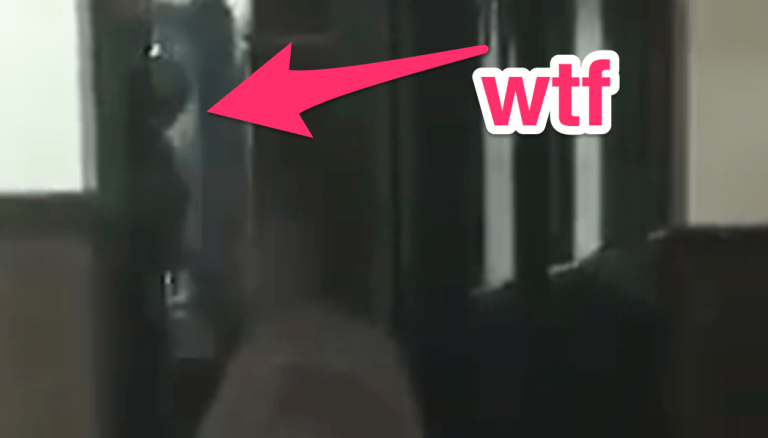
Amber Tuccaro Captured Her Kidnapper’s Voice For 17 Minutes
Amber Tuccaro grew up in Alberta, Canada where her family belonged to the Mikisew Cree First Nation tribe. In 2010, she was 20-years-old and had a 14-month-old son, Jacob. She struggled to provide financially for her and her son and moved between her family’s home and a local women’s shelter. Through all of this she was extremely close with her family, especially her mother, Tootsie Tuccaro.
At the shelter, Amber met a woman named Evangeline and the two decided to take Jacob on a spontaneous trip together to the capital of Alberta, Edmonton. To save money, they booked a room outside of the city at the Nisku Place Motel in Nisku, Alberta. On August 18, 2010 Amber told Evangeline she wanted to go into the city. Evangeline agreed to watch Jacob.
Amber’s mother became worried when Amber suddenly stopped communicating with her via text messaging. Usually the two talked throughout the day. The next morning, Evangeline contacted Tootsie and said that Amber had left in the night without Jacob. Tootsie called the Royal Canadian Mounted Police (RCMP) to report Amber missing but they did not take her call seriously. Tootsie says the police told her “well maybe she’s out partying and she will call or whatever”. She was not interviewed for four months.
For context, there is currently a human rights crisis in Canada where a disproportionately high percentage of missing and murdered women are indigenous. In Canada aboriginal women are 3% of the country’s population but 10% of its murder victims. The epicenter of that human rights crisis is the highway 49 miles north of where Amber was last seen trying to hitch a ride. Highway 16 in Canada between Prince George and Prince Rupert, British Columbia is called the “Highway of Tears”. It’s along this highway that so many indigenous women have been kidnapped and murdered. The reasons the crimes congregate around the highway are because so many aboriginal women experience poverty, generational trauma and domestic violence. Hitchhiking is a common way for indigenous people in Alberta to travel to cities for medical care or to see family members.
On August 28, 2010 the Royal Canadian Mounted Police (RCMP) said they had a sighting of Amber Tuccaro and closed the case and removed her from the national missing persons database. There was no known attempt made to confirm that this sighting was accurate. A month later, Tootsie Tuccaro had Amber re-added to the list, as she had still not been able to contact her daughter, who she had previously been in daily contact with. Tootsie went to personally investigate the belongings Amber left at the hotel and discovered the RCMP had thrown them away.
Two years passed.
On August 28, 2012 the Royal Canadian Mounted Police (RCMP) released an audio recording of a phone call between Amber Tuccaro and her brother. Amber’s brother was incarcerated at the time and in Canada, calls with incarcerated people are recorded. When Amber was picked up while hitchhiking, she likely became suspicious of the driver and called her brother knowing it would be recorded. Her mother had previously advised her to pretend to be on the phone as a safety precaution while hitchhiking. The phone call was 17 minutes in total, but only 61 seconds were released:
Amber: Where are we by?
Unknown Male: We’re just heading south of uh, Beaumont or north of Beaumont.
Amber: We’re heading north of Beaumont…
Amber: Yo, where are we going?
Unknown Male: Just… (Inaudible)
Amber: No, this is a…
Unknown Male: (Inaudible)… The back roads.
Amber: Are you fucking kidding me?
Unknown Male: No, I’m not kidding you.
Amber: You better not take, you better not be taking me anywhere I don’t wanna go. I wanna go into the city, okay?
Unknown Male: One end of the street.
Amber: Yo, we’re not going into the city are we?
Unknown Male: We are. We’re going…
Amber: No, we’re not…
Unknown Male: Yes…
Amber: Then where the fuck are these roads going to?
Unknown Male: To 50th street.
Amber: 50th street? Are you sure?
Unknown Male: Absolutely.
Amber: Yo, where are we going?
Unknown Male: 50th street.
Amber: 50th street?
Unknown Male: 50th street.
Amber: East, right?
Unknown Male: East.
Amber: (Inaudible)… Over now.
Unknown Male: (Inaudible)… Gravel.
Amber: (Inaudible)
Three witnesses came forward and said they recognized the man’s voice in Amber Tuccaro’s last call. The said the man’s name was Pat Carson, a well known sex offender in Alberta. RCMP could not find a link between Pat Carson and Tuccaro and do not consider him a person of interest.
It is unclear when RCMP was alerted to the existence of this phone call and why they closed Amber’s case so quickly or why they waited two years to release the phone call and ask for help in identifying the the male voice heard with Amber Tuccaro. Unfortunately, a few days after the phone call was released Amber’s body was found in a field by someone passing on horseback. Her body was located a 17 minute drive from her hotel.
The RCMP have a long history of neglect and abuse toward Canada’s aboriginal population. More than half of murders of aboriginal women in Canada are unsolved. As recently as 2012 a woman reported that she was “driven outside of town by police officers who raped her and threatened to kill her if she told anyone.”
In July 2019 the RCMP apologized to the Tuccaro family and a 120-page report from the Civilian Review and Complaints Commission of the RCMP found that the investigation into Amber’s disappearance was “deficient”. There have been four bodies found in the area where Amber’s body was found, leading people to suspect she may have been the victim of a serial killer. All four victims were indigenous women who were hitchhiking.
Tootsie Tuccaro is raising Amber’s son Jacob. Her case remains unsolved. The Tuccaro family says “We’re never going to give up, ever. We’re not going anywhere and he needs to know that. The people who are not coming forward and know who he is, they’re just as guilty.”











